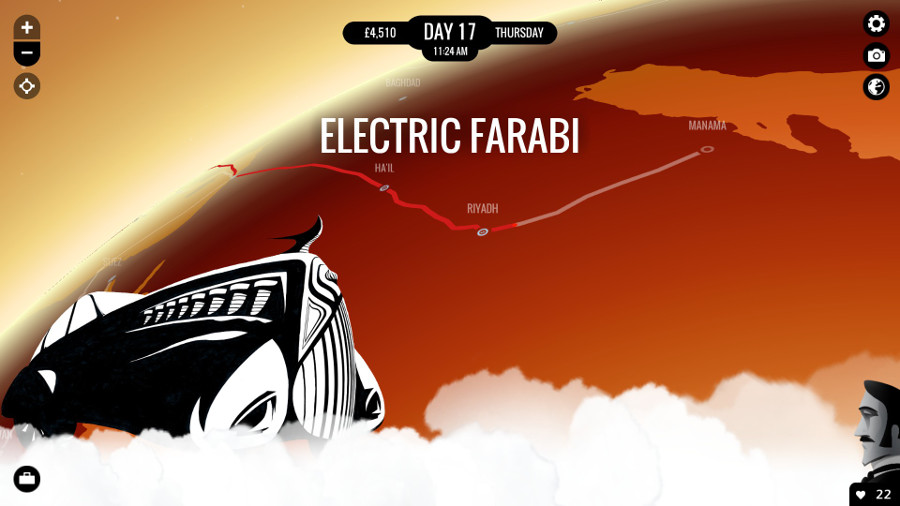Another summer fades to autumn right before our eyes and once again we promise ourselves that now, finally, we will fill in the correct year the first try on our next form. I can say we all do that, right? Yes. Yes I can.
Anyway, it’s been another busy month and we have another short and sweet Blogs of the Round Table to celebrate the changing season. As a reminder, throughout September we were looking for writing on ‘Globetrotting’.

“My life as an Instagram filter”: contextualizing the colonial tourist fantasies of 100 Rabbits
Robert What kicks us off this roundup with a damning analysis of the “travel as inspiration” ethos found in the promotional videos for 100 Rabbits, a “floating studio” hoping to document game-making projects as they travel. Robert summarizes his criticism of the project as:
It’s virtually impossible to be lost in today’s hyper-wired universe of digital information. The network of global capital lies everywhere and is increasingly able to instantly find and ‘locate’ (contextualize) anyone on its vast data control grid. Or perhaps it could be more about being lost to the realities of this real world and just making nonsense of that actual fact – a mere convenient escape into one’s own tiny insular universe of nutrasweet, neat little moments, carved up into easily traded / gameified / gambled micro-Fun™ units

80 Days: Once a Ghost, Always a Ghost
Peterz takes a similar approach in a personal essay on his blog, One More Continue. Peterz reads 80 Days through his own experience and through the writing of Paul Thoreau as a sort of super-condensed life of its own, one that has all the moments of living rushed too quickly to really understand them:
[travel] is fleeting, transitional, you pass by places where you will never belong, meeting people you will never meet again. It is like taking the experience of life and condensing it into a week, a weekend, or even one night. You arrive and it is like you were born – entering the world where you get off the train – and when you leave it’s as if you died for those staying behind. Travel can also be insensitive. The hyper focus on what is really native, the constant search for a genuine experience that never quite existed. The cultural tourism which tries to showcase something that I am no longer convinced has ever existed.

OPENED WORLD: QUEERNESS & MOVEMENT
Last word goes to Haywire Magazine’s Miguel Penabella, who considers the game Roundabout as an empowerment of queerness through the concept of mobility:
The very opening seconds of the game immediately communicate tensions between queerness and established boundaries by a dominant norm. Georgio Manos begins driving while being watched, judged, and evaluated by a DMV driving instructor who measures how well she can integrate within prescribed rules and boundaries established by the city.
And that will wrap us up for this month. Keep a close eye on the next BoRT when the topic drops and consider submitting your own work. In the meantime, thanks for reading and for keeping up with everything we do here at Critical Distance.
If you’d like to see our work continue or to fund our expansion into other projects consider supporting us with a monthly Patreon contribution or a one-time Paypal donation.


